When I turned seven, I began attending a prestigious all-girls convent school across the city. Mother decreed the school bus unsafe, and instead, she hired a driver. I called him Mzee, Swahili for a distinguished old man. He had skin like onyx and wore Islamic prayer beads around his wrist every day.
We didn’t speak much, mostly because I had never spent any time with any man and didn’t know what to say except for an exchange of pleasantries. Our drive home was far more interesting. Even as a child, I was always intrigued by the disparate sections of the city. Going from the quiet, leafy suburb where my school had sat for sixty years since the Irish nuns built it from the ground up, to crisscrossing through the chaos of a township where the tin roofs lay so skewed it was a wonder they didn’t slide off in heavy rain, to then finally entering my family’s neighborhood where residential homes were resortstyle mansions guarded by twenty-four-hour security companies. That was Nairobi—a captivating tilted society of haves and havenots, where many lived on less than a dollar a day and walked miles to and from work in the broiling African sun, while others only shopped overseas for their clothes and shipped in European furniture.
At five p.m. on the dot every day, Mother phoned home to make sure I’d made it back safely.
In those primary school years, I started to really feel my father’s absence. At my new school, fathers seemed suddenly to appear everywhere, at swim meets, tennis matches, and field hockey games, yelling out their daughters’ names in deep, rumbling voices.
I thought I was ready to know the big secret of how my father died. Kokoi wouldn’t tell me and neither would my aunts. They skirted around it like blowflies over a dead carcass. The older I got, the more my frustration grew. Kokoi told me, “With time, my beauty, with time. Some things heard by a young ear change the soul forever. The only thing you need to know about your papai is how much he loved you. He craned his neck like an angry ostrich over any imbecile who said, ‘Don’t worry, next time it will be a boy!’ ”
My aunts told me stories about my father that Mother never shared. They said when Mother went into labor on the warm January night of my birth and was rushed to the hospital, my father couldn’t be reached. Mother complained through the night to all the nurses about his absence, though her bouts of anger were interrupted by bouts of worry and weeping.
“She fretted that something horrible had happened to him; she was inconsolable, but as soon as she wiped away the tears and blew her nose, she would stiffen up again and threaten to strangle him the second she laid eyes on him,” said Aunt Rarin.
My aunts said that I was born at five a.m., small but pink and loud. A day later, I still had no father. On the second day, he arrived disheveled and dirty. His Volkswagen Beetle had crashed into a ditch on a remote country road, forcing him to walk miles and hitchhike to find help with towing. Mother was overjoyed. She told everyone that she had prayed to God and bargained with him: If He let her husband come back alive she would bite her tongue forever, no matter what Father said or did. No one could have predicted that on my fifth birthday, God would renege on His end of the bargain, and she would lose my father for good.
By the time I was ten, I begged everyone who would listen to tell me the truth about what happened to my father, but my tantrums brought no results.
“Soila, you are driving me crazy,” Aunt Naserian complained. I hounded them while they folded meat into triangles of pastry, while they beat the rugs with brooms outside on the veranda. I circled them relentlessly, like a flock of hadadas. Naserian was the second oldest after Mother, and the other aunts followed her lead. If she broke rules, they did too. If she wavered, they did too. On this she remained silent, so the others did too.
At only sixteen, Aunt Tanei broke all of Mother’s rules as if they didn’t apply to her. If anyone would tell me something I wasn’t supposed to know, it was her. But even she stood firm. “Soila, please! I’d rather die.”
I searched for answers in the framed photographs of my father that littered our living room, staring back at me. I studied his eyes, his smile. They were as impersonal to me as the pictures in Mother’s Drum magazines. I couldn’t remember the moments captured in the photographs: my father holding me on his lap on a wooden stool in a photo studio or standing next to me in flared pants while I posed on a red tricycle. I squinted at his face in the photos. If Mother won’t tell me, maybe he will. After all, Kokoi always said the dead tell stories.
I had only a vague memory of the period around when he died, like a broken vase I couldn’t quite glue together. There was going to be a party for my birthday. I had a pink cotton dress ready to wear and Mother was fussing around me and bubbling with excitement. The next clear memory was Mother screaming and me being kept away from the closed door of her bedroom when I called for her.
At school, when my friends asked why I didn’t have a father, I made up stories that became more colorful over the years. One day, my classmates and I were eating lunch, and the topic of my father’s mysterious death came up yet again. “He drove his car into the back of a truck and his body was flat as a pancake when they dug him out,” I replied.
“No, he didn’t.”
I had never liked Salome, the girl who blurted this out accusingly.
“That’s a lie,” Salome continued. “You’ve always got a new story.”
The other girls were silent and wouldn’t meet my eyes. They all knew something I didn’t. The warmth of embarrassed tears stung my eyes.
“Yes, he did,” I argued, packing up my thermos with my beef stew half-eaten. “And why would you say that he didn’t? What do you even know about my family?”
“I know that he died inside your house,” she said, taking a bite of her bologna sandwich. “Everyone knows.”
“Stop it!” Jumping to my feet, I tilted forward to smack her in the face but the screeches of the other girls woke me from my anger. Could it be true what she said?
I couldn’t bear the humiliation. I ran off clutching my lunch bag, blinded by tears. By the time I made it to the brick arches of the school chapel, I could barely catch my breath, choked by sobs. None of the other girls had stood up to Salome. None of them came after me, cared to comfort me.
“What in the heavens is the matter?” Sister Pauline hurried over to me.
“Nothing,” I said, hiding my face with the sleeve of my school cardigan. All of the Irish nuns terrified me. They moved invisibly, only to appear just when we were at our worst behavior. Sister Pauline scared me most. She was head of school and head of the other nuns, who bowed their heads when they crossed her path. “Nothing, I’m fine.”
“You’re not fine,” she said. “Let’s go to the office and have a glass of juice, shall we?”
Mother always said, “Soila—if I ever hear that you have been called to Sister Pauline’s office for bad behavior you will sleep with the chickens in the coop.” And I believed her. Yet here I was, in Sister Pauline’s office, sitting on a hard chair, staring at the wooden crucifix hanging on the wall in front of me while she poured a glass of fresh orange juice and set it on the table. “Now tell me, my child, what is the matter?”
“Salome says my father died in our house,” I said, blowing my nose with a tissue from the box on her desk.
“Well, how would Salome know? Does she live in your home?”
“No, Sister Pauline,” I answered, still sniffling.
“Well then, why do you let her make you so cross? You can’t always worry about what other people say about you.”
“Yes, Sister Pauline.”
“Do you not know how your father died?” she asked, after a slight pause.
“In a car accident,” I said.
“Who told you that?”
“No one. I just know it,” I said.
“Well, well, my child,” she said. “Perhaps it is time you asked your mum about this matter?”
“She won’t tell me. But I know it’s what happened.”
“I think you’re done with school for the day,” Sister Pauline said. “I’ll call your mother now to collect you, and in the meantime, go get your things from the classroom.”
Mother didn’t come to school. Instead, just like always, it was Mzee.
“What’s happened to you?” Mzee asked, as I stuffed my backpack into the back seat of Mother’s Peugeot. “Are you ill?”
“No. Where’s my mother? The headmistress called her to pick me up, not you,” I said sullenly.
Mzee answered with a shrug and turned the volume up louder on his favorite Swahili music station. I closed my eyes and allowed the sound of the East African drumbeat to fog my misery.
***
Buy Lucky Girl here: Penguin Random House
Excerpt from LUCKY GIRL published by The Dial Press, an imprint of Random House, a division of Penguin Random House LLC. Copyright © 2023 by Irene Muchemi-Ndiritu. All rights reserved.


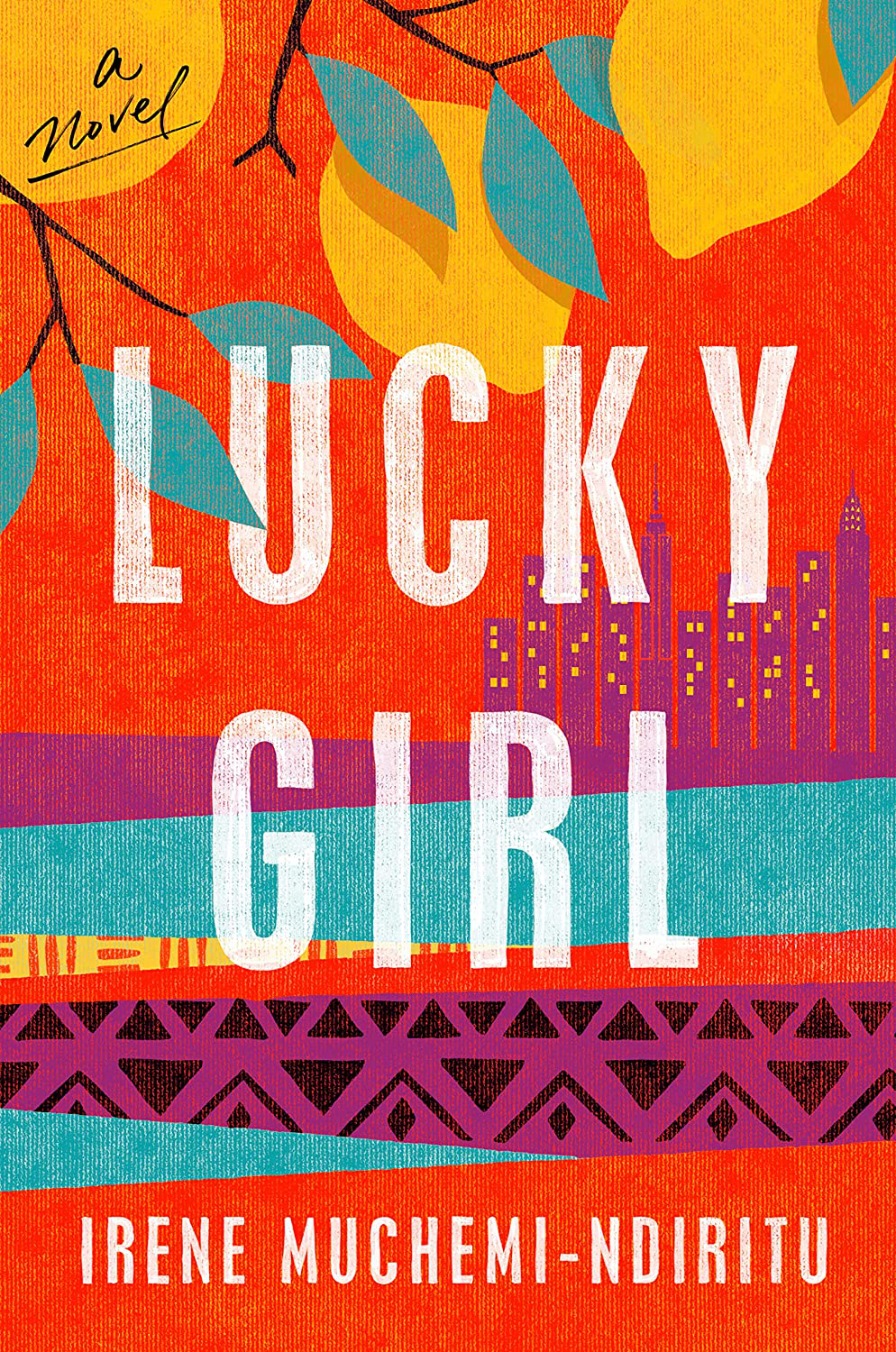
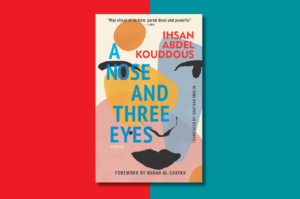
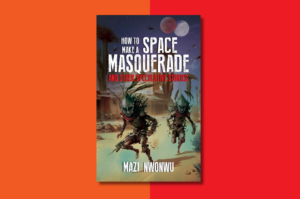
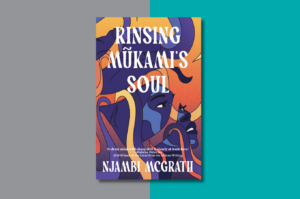
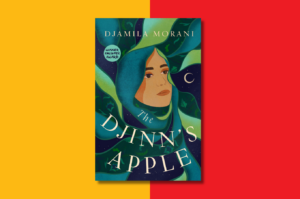
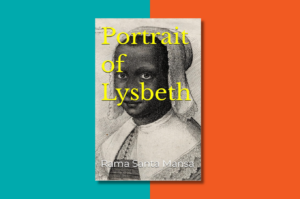


COMMENTS -
Reader Interactions